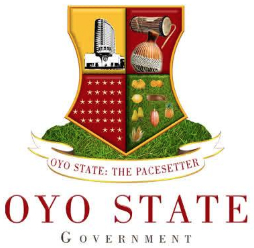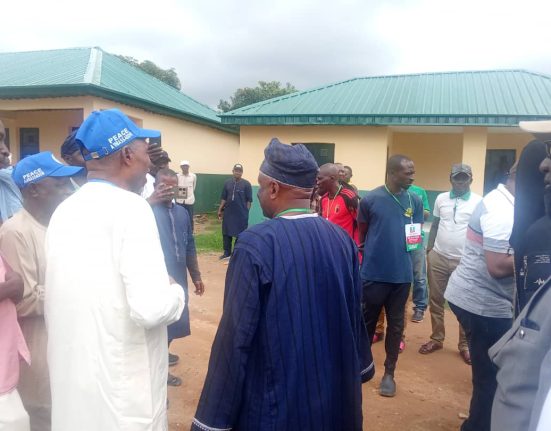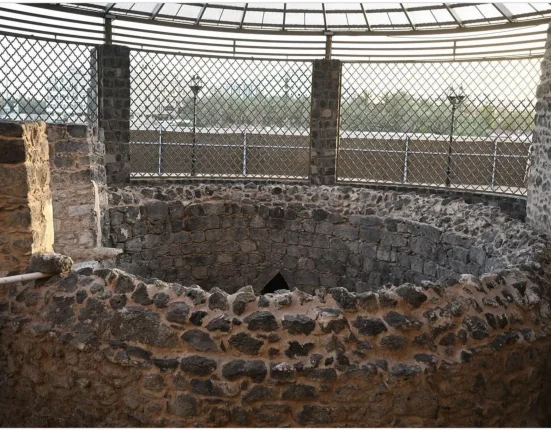In a decisive move to restore lasting peace and communal harmony, the Oyo State Government has initiated comprehensive steps to resolve lingering boundary disputes involving twelve Local Government Areas across the state. The initiative, aimed at addressing both intra and inter-local government boundary conflicts, was spearheaded by the Deputy Governor of the state, Barrister Bayo Lawal, who also chairs the State Boundary Committee.
A mediation session convened by the state government held at the Ministry of Justice’s Mediation Centre within the State Secretariat in Ibadan, and brought together stakeholders, traditional leaders, and representatives from the affected local councils. The local governments embroiled in various territorial disagreements include Ibadan South West and Oluyole; Oyo East and Afijio; Kajola and Iwajowa; Akinyele and Afijio; Saki West and Atisbo; Ibarapa Central and Ibarapa East, as well as the Agbaa and Oko communities within Surulere Local Government Area.
Deputy Governor Lawal, while addressing stakeholders during the session, appealed for restraint and urged parties involved to respect existing judgments and allow due process to guide the final resolution of their disputes. He emphasized that no government desirous of development and stability would allow communal unrest over boundary issues to fester, stressing the constitutional backing of the boundary committee’s role in managing such conflicts.
According to a statement issued in Ibadan on Saturday by the Commissioner for Information and Orientation, Prince Dotun Oyelade, the state government is determined to approach the matter with fairness and uphold the rule of law. Oyelade noted that preventing violent clashes and ensuring peaceful coexistence among communities remain a top priority for Governor Seyi Makinde’s administration, which has previously demonstrated its commitment to peace by successfully overseeing the installation of 40 traditional rulers (Obas and Baales) across the state without any breakdown of order.
The Deputy Governor disclosed that while some disputes are still pending further deliberations, the committee has begun implementing legal rulings where applicable. For instance, the boundary conflict between Kajola and Iwajowa Local Government Areas is being resolved based on judgments delivered by the High Court and the Court of Appeal. Meanwhile, parties in the case between Oyo East and Afijio have been advised to await a conclusive verdict.
On other fronts, the committee called for more legal documentation and evidence regarding the dispute between Saki West and Atisbo, indicating that further investigation is needed before a resolution can be reached. In a similar vein, the Surulere Local Government Chairman has been tasked with providing detailed updates and ensuring effective follow-up on internal boundary concerns involving the Agbaa and Oko communities.
Furthermore, the committee urged leaders and stakeholders in Ibarapa Central and Ibarapa East to prioritize peace and exercise patience as the Surveyor General of the state works on delineating clear administrative boundaries between the councils, distinct from village or community borders.
Commissioner Oyelade reiterated that peace is a cornerstone of the current administration, adding that the state’s track record of fostering traditional institutions without turmoil is a clear reflection of its peace-first approach. His sentiments were echoed by the Commissioner for Local Government and Chieftaincy Matters, Ademola Ojo, who encouraged affected communities to cooperate with the committee’s mediation strategies and accept rulings in good faith.
Also present at the peace parley was the Attorney General and Commissioner for Justice, Barrister Biodun Aikomo, who assured attendees of the committee’s thoroughness in investigating each case. He emphasized that the committee would uphold justice, transparency, and fairness in its final recommendations.
The government’s renewed efforts mark a significant step toward achieving enduring peace, with the state seeking to prevent communal unrest and foster unity among its diverse local government areas.







